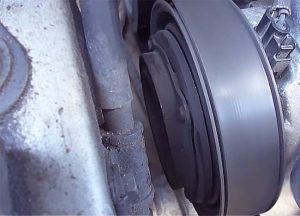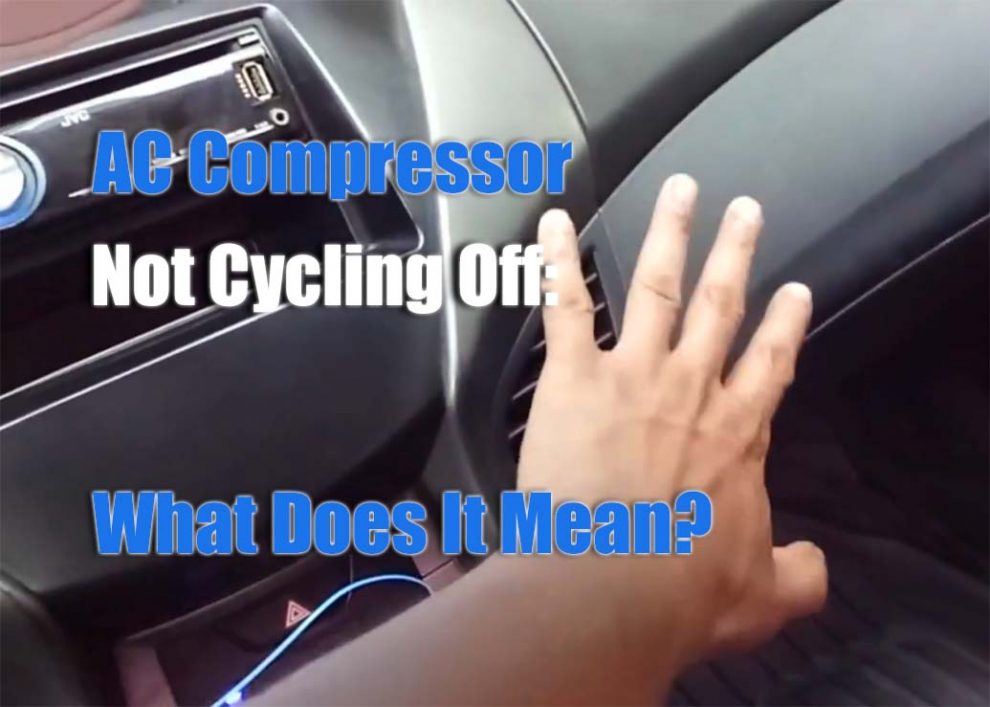The AC compressor, often termed the “heart” of an air conditioning unit, plays an indispensable role in ensuring your spaces remain cool and comfortable. Its primary job is to regulate the flow of refrigerant between the evaporator and the condenser, enabling effective cooling. This process involves cycling on and off at regular intervals, a behavior crucial for both maintaining the desired indoor temperature and optimizing energy consumption. When an AC compressor refuses to cycle off, it’s more than just a minor glitch—it’s a glaring signal that something’s wrong within the system. By delving deeper into this issue, homeowners can gain clarity on the potential causes and, more importantly, how to address them.
Diving Into the Reasons for Continuous Operation
 The machinery of air conditioning is intricate, and a non-stop compressor is a sign that one or more of its components are not performing as they should. Some key factors that contribute to this constant operation include:
The machinery of air conditioning is intricate, and a non-stop compressor is a sign that one or more of its components are not performing as they should. Some key factors that contribute to this constant operation include:
-
A Misbehaving Thermostat: Often, a thermostat that fails to communicate effectively with the rest of the AC system is to blame.
-
An Overcharged Refrigerant System: Overfilling refrigerant can lead to disruptions, making the compressor work incessantly.
-
Electrical Hitches: Continuous operation can stem from electrical issues, such as stuck relays or compromised wiring.
-
A Stuck Compressor Clutch: The clutch, which engages and disengages the compressor, if malfunctioned, can keep the compressor running.
The Downside of Ignoring a Non-Stop Compressor
At first glance, a continuously running compressor might seem like a trivial matter. Perhaps it’s working overtime on an exceptionally hot day? However, this is a misconception. The implications of a non-stop compressor are far-reaching. Immediately noticeable will be the surge in electricity bills as the unit consumes more power. But the longer-term effects are even more concerning. The persistent operation puts an enormous strain on the compressor, hastening its wear and potentially leading to an early breakdown. Additionally, components within the AC unit are designed to work in cycles. By running incessantly, there’s a heightened risk of overheating, and this can have a domino effect, damaging other parts of the system. In extreme cases, such overheating can even pose a fire hazard.
Steps to Rectify a Relentlessly Running AC Compressor
Dealing with an AC compressor that won’t cycle off can initially seem daunting. However, there are a series of steps one can take to identify the root cause and rectify it:
-
Thermostat Assessment: Begin by examining the thermostat. Ensure it is set to the right temperature and that it communicates correctly with the main unit. Sometimes, simply relocating it away from direct sunlight or heat sources can prevent it from reading temperatures inaccurately.
-
Refrigerant Levels: Assess the refrigerant levels. Both overcharging and undercharging can adversely affect the compressor’s cycling. Seek professional help if you’re unsure about the correct levels.
-
Electrical Check: Inspect all electrical components, giving particular attention to the relay switch. Worn-out or damaged wires can interfere with regular operations, and a relay switch that isn’t functioning as it should may be the culprit behind the endless running.
-
Compressor Clutch Inspection: The clutch, which regulates the compressor’s engagement with the motor, is critical. Check for signs of wear or damage and consider replacing it if needed.
-
Regular Maintenance: Often, potential issues can be detected and fixed during routine AC maintenance. It’s wise to have a professional inspect the unit periodically, ensuring all components function as intended.
In Conclusion: Protect Your Cooling System
When it comes to the intricate systems within our homes, a proactive approach is always best. Recognizing the signs of an AC compressor not cycling off and taking swift action not only ensures a comfortable living environment but also prolongs the lifespan of your unit. Regular check-ups and maintenance can help identify potential problems early on, making rectification easier and less costly. On a slightly different note, if optimizing performance is on your radar, especially for vehicle enthusiasts, don’t forget to peek into our article on the Best Cold Air Intake for Honda Civic. This addition can significantly enhance your vehicle’s efficiency and power.


Add Comment